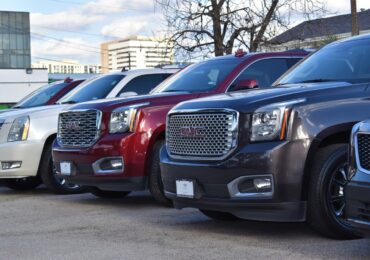
Key Takeaways
- Understand the benefits of buying a used car, including cost-effectiveness and lower depreciation.
- Learn how to evaluate a pre-owned vehicle’s health through test drives and maintenance checks.
- Discover the importance of considering ownership costs, such as insurance and repairs.
- Explore the pros and cons of buying from a dealership versus a private seller.
Why Consider a Pre-Owned Vehicle?
Purchasing a pre-owned vehicle often presents a financially savvy decision. With a used car, you can reap the benefits of lower initial costs and reduced depreciation. Consider a Kia Optima Certified Pre-Owned, which offers a reliable vehicle experience while already having undergone its highest depreciation phase. This allows drivers to enjoy advanced features and solid performance without the premium price tag attached to a brand-new model.
According to Edmunds, cars lose a significant portion of their value within the first few years. Opting for a used model circumvents this steep depreciation, preserving the car’s value during your ownership. For many, the financial relief from lower purchase prices and diminished depreciation curves means more money for other life expenses.
Evaluating the Vehicle
Test Drives Matter
Despite advances in online car shopping platforms, experiencing a vehicle firsthand through a test drive remains critical to car buying. Potential issues might come to light during a test drive, such as alignment problems or odd engine noises. These real-world trials reflect the car’s condition and are key indicators of potential problems. Consider consulting an experienced mechanic who can identify mechanical strengths and weaknesses that might not be apparent to the average driver.
Check the Maintenance History
A vehicle’s maintenance history tells a story of care that can’t be overstated. Comprehensive records often indicate a conscientious owner who prioritized the vehicle’s upkeep. Important intervals such as oil changes, brake checks, and tire rotations should be regularly documented. In some cases, these records can be used as a negotiating tool to agree on a fair price, ensuring a good deal and peace of mind in knowing the vehicle’s history.
Ownership Costs You’ll Face
While the allure of a lower upfront cost is enticing, it’s crucial to consider the holistic financial commitment of owning a pre-owned vehicle. Consumer Reports highlights the importance of thoroughly evaluating ongoing expenses such as insurance premiums, which fluctuate based on the car’s age, model, and history. Furthermore, unexpected repair costs can arise, necessitating a contingency budget to safeguard against unforeseen issues. Additionally, understanding a vehicle’s fuel efficiency helps project your longer-term fuel expenses, rounding out your total cost of ownership.
Buy from a Dealership or Private Seller?
The decision between buying from a dealership or a private seller can significantly shape your purchasing experience. Dealerships often provide perks such as certified pre-owned vehicles that include warranties, which can be tempting for those seeking added security and support after the sale. In contrast, private sellers might offer more attractive pricing. Still, without the safety net that dealerships provide, buyers must weigh these factors carefully, considering their comfort with risk and desire for additional assurances.
Gather Opinions and Make Informed Decisions
Automotive forums and review sites are treasure troves of information, offering real-world insights from other consumers who share their experiences with various vehicles. This data can be imperative when narrowing down your choices. Engaging with these communities can also introduce you to unexpected considerations, such as availability of parts, frequency of repairs for certain models, or tips on negotiating better deals. Assembling these layers of information will guide you toward a more informed and confident decision.
Your Next Steps to Ownership
- Identify your budget and needs: Understanding your financial limitations and vehicle requirements largely dictates the scope of your search.
- Research suitable models and their market prices: Clarify current market conditions to avoid overpaying.
- Inspect and test drive chosen vehicles: Partner with a mechanic to verify the car’s condition thoroughly.
- Negotiate and finalize your purchase: Approach negotiations with as much documentation as possible to justify your offer.
Wrap-up Thoughts
Diving into pre-owned vehicles is an exciting and strategic endeavor, blending research, evaluation, and negotiation to fruition. By being diligent and methodical, from researching to test driving, you ensure that your purchase fits within your budget and aligns with your lifestyle. As always, prepare to invest time in this process to reap long-term benefits — securing a vehicle that offers both reliability and enjoyment for years to come.